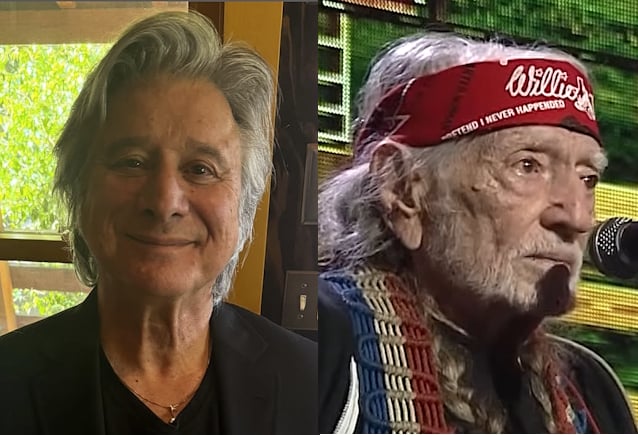Wes Anderson: Unpacking The Melancholy Beneath The Whimsy

Welcome to your ultimate source for breaking news, trending updates, and in-depth stories from around the world. Whether it's politics, technology, entertainment, sports, or lifestyle, we bring you real-time updates that keep you informed and ahead of the curve.
Our team works tirelessly to ensure you never miss a moment. From the latest developments in global events to the most talked-about topics on social media, our news platform is designed to deliver accurate and timely information, all in one place.
Stay in the know and join thousands of readers who trust us for reliable, up-to-date content. Explore our expertly curated articles and dive deeper into the stories that matter to you. Visit Best Website now and be part of the conversation. Don't miss out on the headlines that shape our world!
Table of Contents
Wes Anderson: Unpacking the Melancholy Beneath the Whimsy
Wes Anderson's films are instantly recognizable. The symmetrical compositions, the pastel palettes, the quirky characters – these are hallmarks of a distinct and beloved cinematic style. But beneath the whimsical surface, a current of melancholy consistently flows, adding depth and resonance to his often-surreal narratives. This exploration delves into the underlying sadness that permeates Anderson's work, examining how it enhances the overall viewing experience and contributes to his enduring appeal.
The Allure of Nostalgia and Loss:
Anderson's films are often steeped in nostalgia, revisiting childhood memories and exploring themes of loss and longing. From the dysfunctional family dynamics in The Royal Tenenbaums to the poignant farewells in Moonrise Kingdom, a sense of faded glory and irretrievable pasts hangs heavy in the air. This isn't simply sentimental; it's a melancholic exploration of the ephemeral nature of time and relationships. The meticulously crafted sets, often resembling elaborate diorama's, further emphasize this sense of a constructed, almost artificial past, highlighting the bittersweet nature of memory.
Eccentric Characters, Shared Pain:
While Anderson's characters are undeniably eccentric and often humorous, they are rarely free from inner turmoil. They are frequently grappling with dysfunctional families, unrequited love, or a profound sense of alienation. Take, for instance, the characters in The Grand Budapest Hotel, each burdened by their own personal tragedies, yet finding fleeting moments of connection and humanity amidst the chaos. This juxtaposition of absurdity and sorrow creates a compelling and emotionally resonant experience for the viewer.
Symmetry and Structure: A Reflection of Inner Turmoil?
Anderson's signature visual style, characterized by its meticulous symmetry and precise framing, can also be interpreted as a reflection of the underlying anxieties and controlled chaos present in his characters' lives. The perfect symmetry, in a way, becomes a coping mechanism against the unpredictable and often painful realities of life. This controlled aesthetic becomes a visual representation of the characters' attempts to impose order on their chaotic internal worlds.
Beyond the Whimsy: A Deeper Dive into Themes:
- Family Dysfunction: Many of Anderson's films explore the complexities and often painful realities of family relationships. The dysfunctional families in The Royal Tenenbaums and Fantastic Mr. Fox highlight the struggles of connection and acceptance.
- The Search for Belonging: Themes of isolation and the yearning for belonging are prevalent throughout Anderson's filmography. His characters often find themselves adrift, searching for their place in the world.
- The Passage of Time: The bittersweet passage of time is a recurring motif, highlighting the ephemeral nature of life and the inevitability of loss.
The Enduring Appeal of Anderson's Melancholy:
The melancholic undercurrent in Wes Anderson's films isn't a flaw; it's a crucial element that adds depth and complexity to his otherwise whimsical narratives. It's this masterful blend of humor and pathos that resonates with audiences and cements his status as one of cinema's most unique and compelling voices. It's a testament to his ability to explore profound themes of loss, longing, and the human condition within visually stunning and undeniably entertaining films. Ultimately, Anderson's work invites us to confront our own melancholies, finding beauty and meaning even in the face of sadness.
What are your thoughts on the melancholic undertones in Wes Anderson's films? Share your opinions in the comments below!

Thank you for visiting our website, your trusted source for the latest updates and in-depth coverage on Wes Anderson: Unpacking The Melancholy Beneath The Whimsy. We're committed to keeping you informed with timely and accurate information to meet your curiosity and needs.
If you have any questions, suggestions, or feedback, we'd love to hear from you. Your insights are valuable to us and help us improve to serve you better. Feel free to reach out through our contact page.
Don't forget to bookmark our website and check back regularly for the latest headlines and trending topics. See you next time, and thank you for being part of our growing community!
Featured Posts
-
 Faithfully Gets A Country Twist Steve Perry And Willie Nelson Collaborate
May 17, 2025
Faithfully Gets A Country Twist Steve Perry And Willie Nelson Collaborate
May 17, 2025 -
 Chris Taylor Delivers Ground Ball Rbi Sparks Dodgers Offense
May 17, 2025
Chris Taylor Delivers Ground Ball Rbi Sparks Dodgers Offense
May 17, 2025 -
 Small Business Owners Struggle Amidst Volatile China Tariffs
May 17, 2025
Small Business Owners Struggle Amidst Volatile China Tariffs
May 17, 2025 -
 A Bite Of Italy Stanley Tuccis Culinary Exploration Of Italy On Nat Geo
May 17, 2025
A Bite Of Italy Stanley Tuccis Culinary Exploration Of Italy On Nat Geo
May 17, 2025 -
 Roberts Smith Defamation Case Appeal Court Ruling And Its Implications
May 17, 2025
Roberts Smith Defamation Case Appeal Court Ruling And Its Implications
May 17, 2025
Latest Posts
-
 Istanbul Un Bazi Boelgelerinde Siddetli Yagis Uyarisi
May 18, 2025
Istanbul Un Bazi Boelgelerinde Siddetli Yagis Uyarisi
May 18, 2025 -
 New Orleans Jailbreak 11 Inmates Murder Suspects Among Escapees
May 18, 2025
New Orleans Jailbreak 11 Inmates Murder Suspects Among Escapees
May 18, 2025 -
 Trump Responds To Springsteens Treasonous Remark
May 18, 2025
Trump Responds To Springsteens Treasonous Remark
May 18, 2025 -
 New York Baseball History The 10 Most Unforgettable Moments Of Conflict And Triumph
May 18, 2025
New York Baseball History The 10 Most Unforgettable Moments Of Conflict And Triumph
May 18, 2025 -
 Cannes Through A Different Lens Funny And Unconventional Images From Before Cell Phones
May 18, 2025
Cannes Through A Different Lens Funny And Unconventional Images From Before Cell Phones
May 18, 2025
